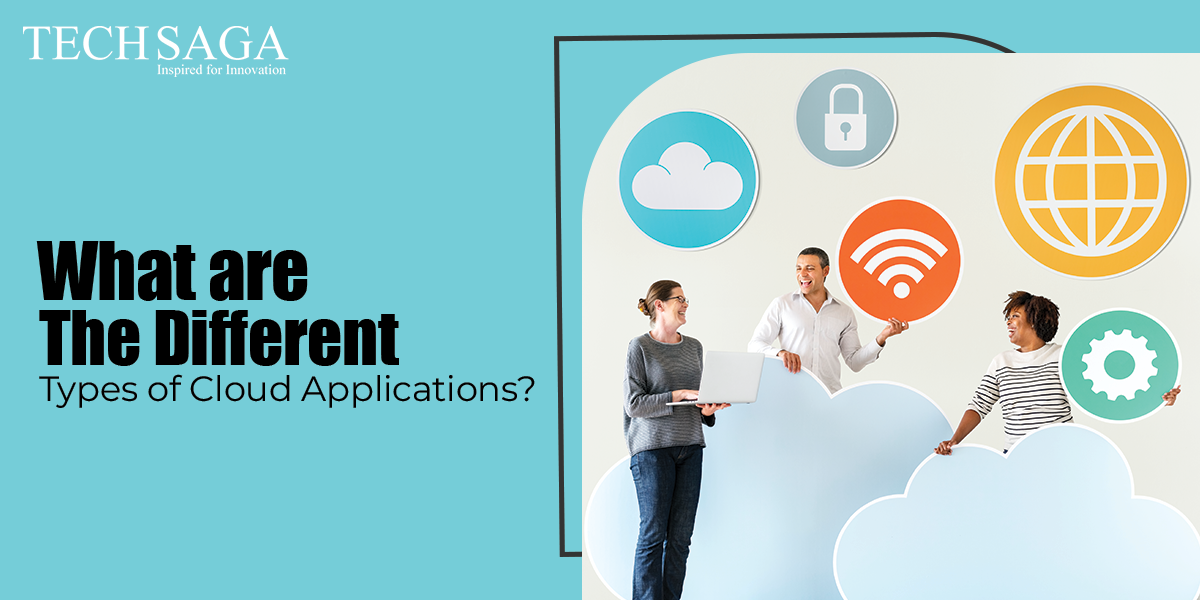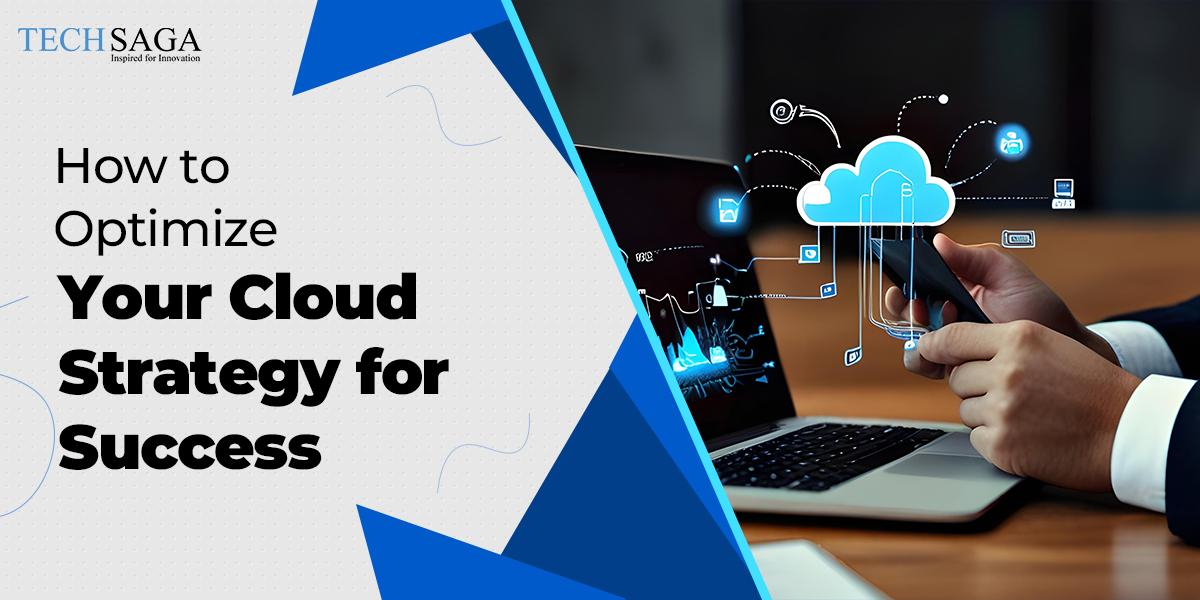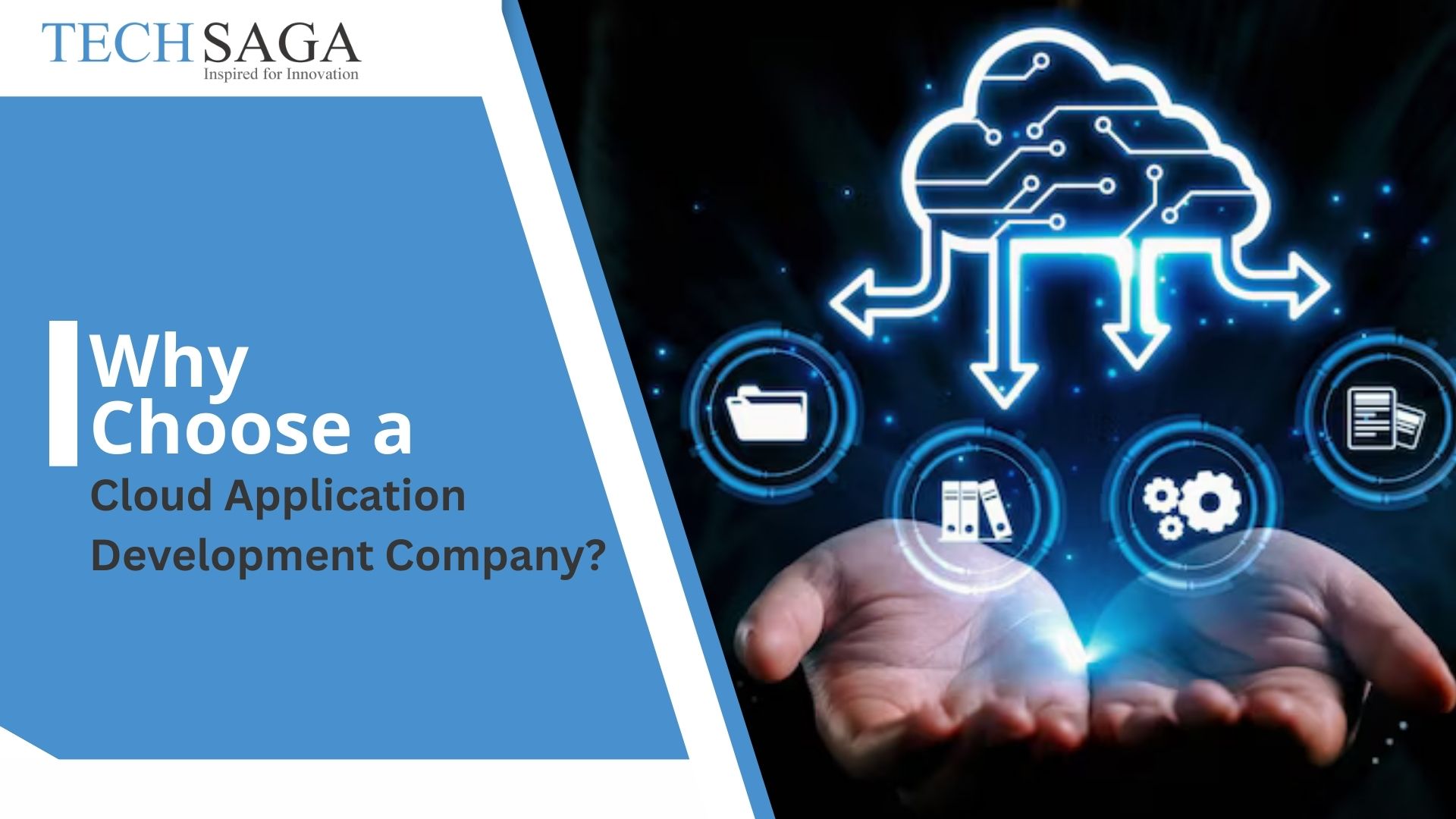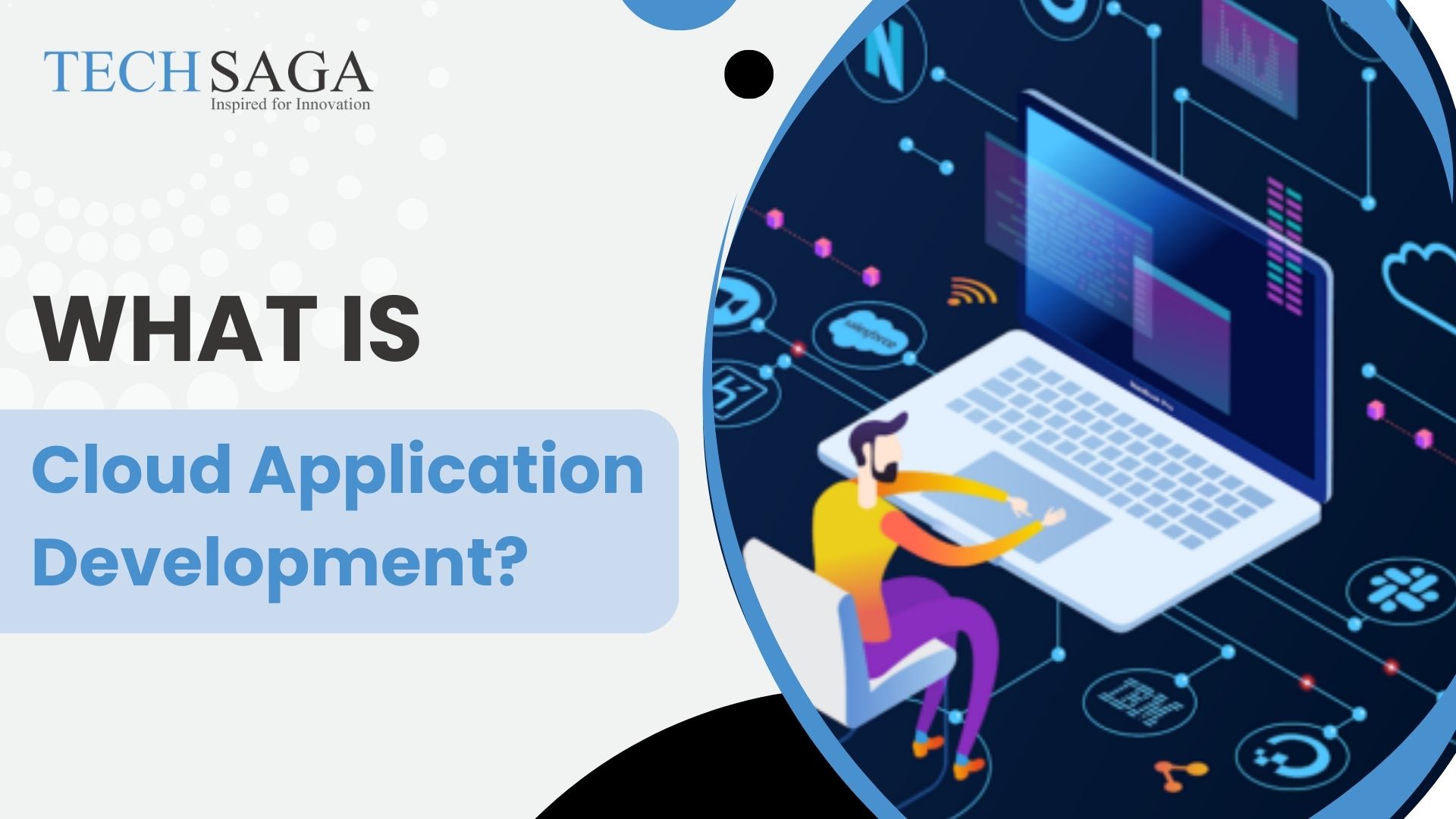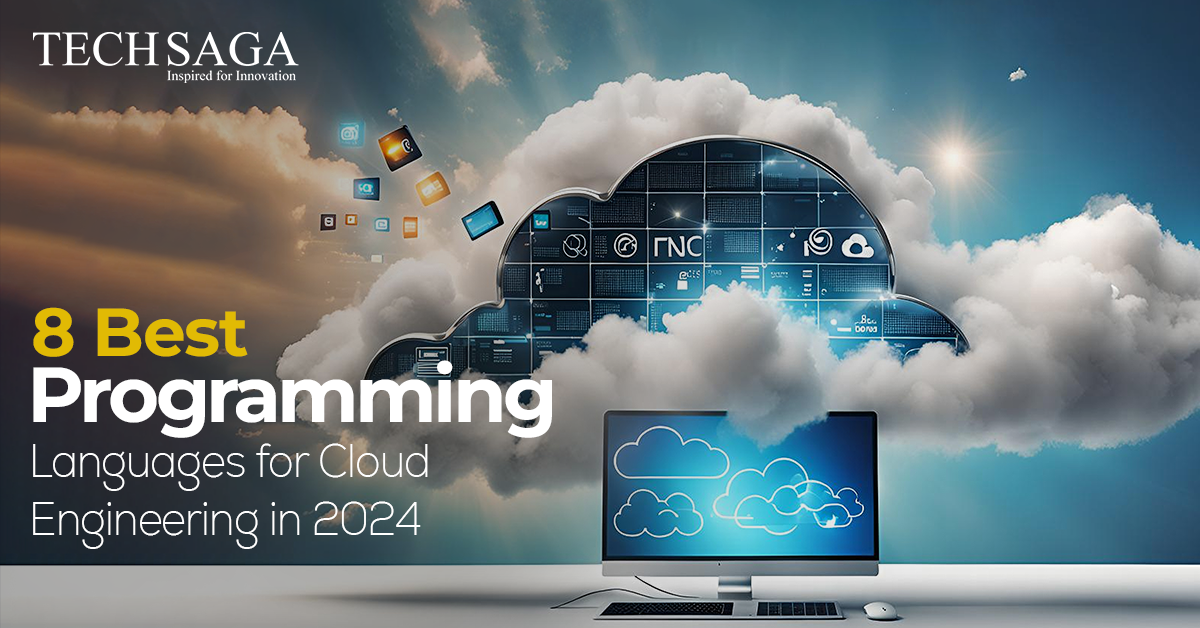Team Techsaga
Gain valuable insights and stay updated with the latest innovations through our engaging blog. Explore trends, technology advancements, and expert opinions to navigate the ever-evolving world of IT.
What are the Different Types of Cloud Applications?
These days, companies are under pressure to innovate, scale, and adapt faster. The need for seamless user experiences, demand for digital transformation, and growth of remote workforces have made cloud apps essential for successful modern businesses. Further, Cloud technology drives everything from online banking and streaming services to enterprise SaaS solutions and AI-powered platforms. More than 75% of businesses will use cloud-native systems by 2026 to speed up digital transformation. Therefore, Cloud Application Development Services has evolved from a trend to a need in this dynamic ecosystem.
Moreover, as there are different types of cloud applications available in the market, choosing the right one is essential. So, before selecting the cloud application development service, let’s understand its various types. Have a look!
Cloud Applications- Explained
A cloud application is a software program where cloud-based components work together with local components. Unlike traditional apps installed and run entirely on individual computers or local servers, cloud apps rely on cloud infrastructure for data storage, computing power, and service delivery.
Moreover, these applications can be accessed over the internet through browsers or lightweight client interfaces, enabling greater flexibility, scalability, and cost-efficiency.
Why Cloud Application Development Services Matter
Businesses are increasingly turning to cloud application development services to:
- Reduce infrastructure costs
- Accelerate time-to-market
- Enable real-time collaboration
- Ensure seamless updates and scalability
- Also, boost emergency recovery and data security
Therefore, an experienced cloud application development company can design, build, and manage cloud-native applications tailored to specific business needs, eventually ensuring high performance and scalability.
Various Cloud Applications
Cloud applications come in various forms based on their architecture, deployment model, and service delivery. So, let’s break them down.
1. Software as a Service (SaaS)
The most popular and well-known kind of cloud application is SaaS. These are fully functional software applications delivered over the internet, requiring no local installation.
Instances:
- Google Workspace (Docs, Sheets)
- Salesforce
- Microsoft 365
- Zoom
Key Features:
- Subscription-based pricing
- Automatic updates and patches
- Accessible from any internet-connected device
- Also, minimal infrastructure responsibility for users
When to Choose:
SaaS is ideal for businesses that want ready-to-use solutions without the hassle of maintenance, especially for functions like CRM, communication, collaboration, and productivity.
2. Platform as a Service (PaaS)
PaaS offers a development platform and environment in the cloud for developers to build, test, and deploy applications. Additionally, it abstracts infrastructure management so that developers can concentrate just on logic and coding.
For Instances:
- Google App Engine
- Microsoft Azure App Services
- Heroku
Essential Characteristics:
- Managed infrastructure
- Integrated development tools
- Built-in scalability and security
- Also, support for multiple programming languages
When to Choose:
Use PaaS when your team needs a collaborative environment for cloud application development without managing backend complexities.
3. Infrastructure as a Service (IaaS)
IaaS provides virtualized computing resources over the internet. This includes servers, storage, and networking, eventually allowing companies to build highly customizable applications from the ground up.
Instances:
- Amazon Web Services (AWS)
- Microsoft Azure
- Google Cloud Platform (GCP)
Essential Characteristics:
- Full control over infrastructure
- Pay-per-use pricing
- Scalable and flexible computing
- Also, customizable security configurations
When to Choose:
IaaS is best suited for businesses with experienced DevOps teams that want full control over application architecture and deployment.
Deployment Models of Cloud Applications
Beyond service types, cloud applications also differ by deployment models, each with its own advantages.
Public Cloud Applications
These are hosted on third-party cloud providers like AWS, Azure, or Google Cloud. Resources are shared across multiple organizations (multi-tenancy), making them cost-effective and scalable.
Pros:
- Reduced expenses for operations
- High scalability
- Easy deployment
Best Use Cases:
Startups, SMEs, or any organization needing fast, budget-friendly solutions.
Private Cloud Applications
Private cloud apps provide more security and customisation because they are hosted on dedicated infrastructure. These are often used by organizations with strict compliance needs.
Pros:
- Increased security and control
- Personalized infrastructure
- Also, better performance isolation
Best Use Cases:
Government, financial institutions, and healthcare organizations.
Hybrid Cloud Applications
A hybrid cloud blends public and private cloud environments, enabling data and applications to move between the two. This also offers flexibility in managing workloads.
Pros:
- Optimized workload distribution
- Enhanced resilience
- Greater agility and control
Best Use Cases:
Enterprises with dynamic workloads or specific regulatory requirements.
Specialized Types of Cloud Applications
As cloud computing evolves, new models and specializations have emerged.
Cloud-Native Applications
Built specifically for the cloud using microservices, containers, and APIs, these apps are designed for speed, scalability, and resilience.
Important Features:
- Suitable for DevOps
- Scaling automatically
- Resilient to failures
- Also, constant delivery and integration (CI/CD)
Cloud Application Development Services for Cloud-Native Apps:
A cloud application development company specializing in microservices, containerization (e.g., Docker, Kubernetes), and CI/CD pipelines can streamline the entire development lifecycle for cloud-native apps.
Progressive Web Applications (PWA) on Cloud
PWAs combine the best of web and mobile apps and are often deployed via cloud services for seamless global access.
Advantages:
- Works offline
- Quick loading speeds
- Also, compatibility between platforms
Edge Cloud Applications
With IoT and 5G on the rise, edge cloud apps bring computing closer to the data source.These applications are essential for processing data in real time and also lower latency.
Suitable For:
- Smart cities
- Autonomous vehicles
- Industrial IoT
Key Considerations When Choosing Cloud Application Development Services
a. Business Objectives
Are you aiming for global reach, high-performance computing, or rapid prototyping? Your goals will shape your choice.
b. Security & Compliance
Sensitive industries may require private or hybrid deployments to meet strict regulations like HIPAA or GDPR.
c. Budget & Resources
SaaS and public cloud apps are cost-effective. But if you have the tech team and budget, IaaS or private clouds provide greater control.
d. Scalability Needs
Opt for platforms that can scale dynamically with usage. For apps that see increases in users or seasonal enterprises, this is essential.
How a Cloud Application Development Company Can Help
Partnering with the right cloud application development company ensures you don’t just adopt cloud solutions—you maximize their value.
They are able to:
- Assess your business needs and recommend the ideal cloud model
- Handle migration, security, and compliance
- Deliver customized, scalable cloud-native apps
- Also, provide long-term maintenance and optimization
Therefore, by leveraging expert cloud application development services, businesses can avoid common pitfalls, accelerate delivery timelines, and eventually ensure future readiness.
Conclusion: Embrace the Cloud, The Smart Way
Whether it is small apps or mission-critical enterprise systems, cloud technology is supporting innovation, efficiency, and agility at every level. However, it all depends on choosing a suitable cloud application type.
Additionally, integrating SaaS platforms, building microservices-based applications, or modernizing your IT infrastructure, with the help of the cloud application development services, you can achieve your digital goals efficiently and securely.
Techsaga Corporations, a leading cloud application development company, offers end-to-end customised solutions. With expertise in SaaS, PaaS, and cloud-native applications, we deliver scalable, secure, and high-performance digital growth through top cloud application development services, driving innovation and business growth.
